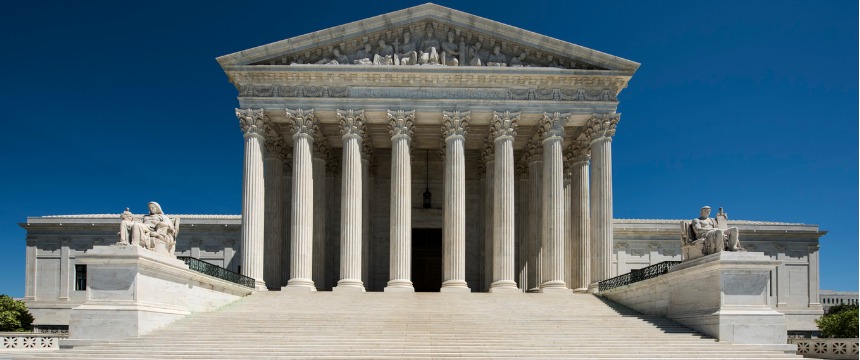Supreme Court TCPA News: Government Debt Collectors Beware and Autodialers Under Review

The Supreme Court is showing interest in the Telephone Consumer Protection Act (TCPA), which is designed to control certain unwanted calls, and which over the last decade has been a favored tool of the plaintiffs’ bar to collect large class settlements, given the availability of statutory damages of $500 per call or text (which can be trebled if willful). The recent decision in Barr v. American Association of Political Consultants (AAPC) overturns a carve-out to the TCPA that permitted robocalls to collect federal debt. No. 19-631, slip op. at 1 (U.S. Jul. 6, 2020). Additionally, Facebook has finally convinced the Supreme Court to consider what types of dialer equipment fall under the TCPA’s purview as automatic telephone dialing equipment.
Government Debt Collector Carve-Out Overturned: Barr v. AAPC
In 2015, the Bipartisan Budget Act amended the TCPA to allow for robocalls made “solely to collect a debt owed to or guaranteed by the United States.” 129 Stat. 588. In other words, while regular debt collectors were prohibited from making certain types of calls to collect debt, the government saw fit to create an exception for entities calling to collect debt owed to the federal government. The debt collection carveout was challenged by plaintiffs seeking to make robocalls for the purpose of political outreach. Barr, No. 19-631, slip op. at 5. The plaintiffs claimed the exception was a content-based restriction on free speech, and that the entire robocall restriction should therefore be invalidated. Id.
The Supreme Court ruled that the debt collection carveout amounted to an unconstitutional content-based restriction of free speech. Id. at 7. The government “has no power to restrict expression because of its message, its ideas, its subject matter, or its content.” Police Dept. of Chicago v. Mosley, 408 U. S. 92, 95 (1972). The Court held that the carveout restricted speech based on content, as it favored speech made for the purpose of collecting government debt over all other speech. Barr, No. 19-631, slip op. at 7.
But before any defendants celebrate, the Court’s ruling does not restrict the TCPA’s application—it expands it. Rather than striking down the entire TCPA and permitting all calls, the Court simply severed the government debt collection exception. Id.
What is an Autodialer: Facebook Inc. v. Duguid
Perhaps more intriguing, shortly after ruling in Barr, on July 9, 2020, the Supreme Court agreed to hear a case that will determine what constitutes automatic telephone dialing equipment (“ATDS”) for purposes of the TCPA. The TCPA prohibits certain telephone calls or texts sent with the use of an ATDS. According to the complaint, Facebook maintained a database of phone numbers and—using a template and coding that automatically supplied the browser information and time of access—programmed its equipment to send automated messages to those numbers each time a new device accessed the associated account. A split has developed between the various Courts of Appeals over what technology qualifies as using an ATDS. The Ninth and Second Circuits have held that the term ATDS encompasses all devices with the capacity to store and automatically dial numbers, which would include Facebook’s method. Alternatively, the Seventh and Eleventh Circuits have held that an ATDS only covers devices that send messages or make calls to randomly or sequentially generated phone numbers. A decision either way could drastically change the landscape of the TCPA, and significantly impact the methods companies use to reach consumers.
Rolling with the Changes
As the Supreme Court continues to shape the rules on TCPA compliance, companies ought to be ready to adapt their outreach methods to comply. The elimination of the debt collection exception means even more companies are now subject to the TCPA’s prohibitions against robocalls, and they must be very cautious when considering any automated communications with citizens. And all eyes will be on the Supreme Court as it determines what constitutes an ATDS such that it would subject a company to the TCPA’s steep fines. With the TCPA clearly on the Supreme Court’s radar, companies should be aware that big changes may be in the works.
* The authors would like to thank Foley & Lardner LLP summer associate Zach Kumar for his contributions to this publication. Mr. Kumar is a law student at Duke University School of Law.

